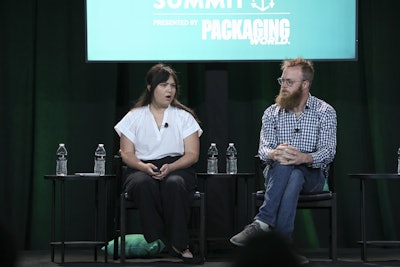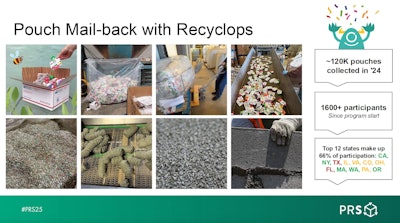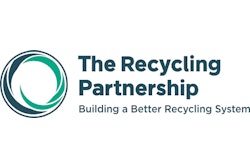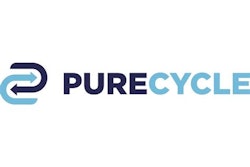
Once Upon a Farm is taking a hands-on approach to a big industry challenge: how to recover flexible food packaging that often isn’t accepted in curbside recycling. The organic baby food and snack brand has teamed up with Recyclops, a tech-enabled recycling company that specializes in hard-to-recycle materials, to offer a mail-back program for its squeezable pouches.
Instead of waiting for the perfect infrastructure or policy to arrive, the brand chose to act. “We don’t let complexity equal complacency,” said Madeline Tien, sustainability specialist at Once Upon a Farm. The company’s goal is to make steady progress by supporting real-world recovery and gaining insights that can help drive long-term change.
 | Read this related article, “Pact Collective Champions Beauty Packaging Circularity” |
The partnership with Recyclops enables a consumer mail-back program for the brand’s all-PE pouches, which were redesigned last year to reduce plastic use by 20% and move away from a multi-material format. Although it’s a mono-material package, food residue and the closure prohibit store-drop off. While the Recyclops program doesn’t solve for this, it provides transparency and real end-of-life processing through building materials recycler CRDC Global, where the collected pouches are converted into concrete aggregate.
For an emerging brand with a small sustainability team, the program’s value goes beyond collection. “This program is a way for us to take small but meaningful actions to support broader industry change,” Tien said. That includes building awareness, proving out end markets, and using data to inform strategy. “We can see a lot of information that tells us about how they’re using pouch mail-back,” she added, noting that insights like weekday label-printing trends help shape engagement efforts.
 Once Upon a Farm/Recyclops
Once Upon a Farm/Recyclops
From Recyclops’ perspective, creating transparency is both a value and a business advantage. “Transparency is our number one core value,” said Ryan Smith, CEO of Recyclops. “Consumers are demanding that transparency of brands. And brands want to be able to make statements and trust that they’re telling the truth.”
That openness has also helped foster unusual collaboration. Once Upon a Farm and CRDC Global were able to connect directly, something that rarely happens in recycling supply chains. “Both sides loved it,” Smith said. “And I got to just sit back and watch.”
While participation rates in mail-back programs remain modest, they offer proof points that can lay the groundwork for future solutions. “If there were great end markets for complex materials, we wouldn't be here today,” Smith said. “But part of this is creating broader system change… and stair-stepping our way up to where we want to be.”
For Tien, it’s not about claiming that mail-back is the ultimate answer. It’s about learning what works. “Even small-scale efforts can instill insights that we hope will pave the way down the road for broader impact,” she said. “Transparency and collaboration are really vital in moving the needle forward on flexible film recycling.” PW

























